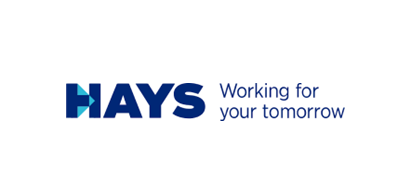- More than half (53%) of professionals in Scotland have had a negative experience during an interview process
- Nearly half (47%) of professionals have been deterred from a prospective employer due to a poor experience during the interview process
- Over a third (35%) of employers say it takes between one to four weeks to contact applicants who have made it through to the interview stage
Many employers in Scotland are falling short when it comes to providing a positive experience during the interview process and are consequently losing out on talent from the word go, according to Hays’ latest research.
The research, which received almost 11,900 responses from employers and professionals across the UK, found that 53% of employees in Scotland have had a negative interview experience during an interview process.
The main reason was cited as poor communication and a lack of clarity when it came to the steps involved (39%). Other factors include unprepared interviewers (38%), the process being too long and cumbersome (36%) and a lack of structure to the process (33%).
The research also reveals that close to half (47%) of professionals were deterred from a prospective employer due to a poor experience during the interview process, suggesting that employers may be losing the best talent at the very start of the process.
Keith Mason, director at Hays Scotland, comments: “It’s important to remember that an interview is a two-way process. They’re as much about a jobseeker assessing the appeal of an employer and organisation, as they are about an employer contemplating the suitability of an applicant.
“It’s essential for hiring managers to actively advocate for their company and the roles they offer, emphasising the compelling reasons to join their team. They should animate the essence of the company through detailed job descriptions and personal interactions, dedicating effort to communicate the company’s unique selling points, its commitment to diversity, equity, and inclusion, its sustainability goals, and their personal positive experiences within the company. These elements are crucial in attracting the right talent.
“Our research suggests that many employers need to up their game to compete for talent, by making sure their application process is a green flag for jobseekers. It’s crucial to get off on the right foot with prospective staff, by clearly communicating what the interview process will entail, being considerate of their time and providing feedback where possible. Otherwise, organisations risk falling at the first hurdle and letting go of talent before they’ve even secured it.”
Other reasons that jobseekers were put off were underprepared interviewers and an unorganised overall structure (46%), and the process taking too long which, in 35% of cases, can take up to four weeks between submission of an application and notification of an interview. A more normal common frame, however, is up to one week (42%) to notify a candidate if they’ve made it to the interview stage.
“Only 25% of jobseekers believe that a four-week timeframe between application and interview is acceptable,” continued Mason. “Especially as some candidates may never hear from the organisation again, regardless of whether they were successful. Fortunately, the research shows that, compared to the rest of the UK, employers in Scotland are relatively good at responding, with 63% of organisations contacting every applicant. It’s also helpful if employers can provide constructive feedback following the interview, regardless of the outcome.”
The Hays research also highlighted how the issue of age can be a barrier in the application process. Mason believes that organisations should reflect and develop strategies to address this challenge, ensuring that the recruitment process is fair and offers equal opportunities for applicants of all ages.
“It’s about fostering an environment where experience and maturity are valued as much as youth and innovation. Organisations should create a recruitment experience that’s inclusive and equitable for professionals of all ages, ensuring that each candidate’s journey, from the interview stage onwards, is consistently positive and free from bias.”

